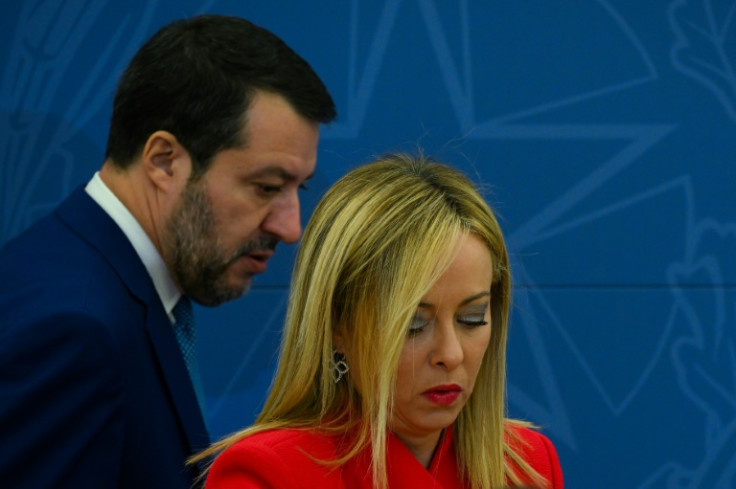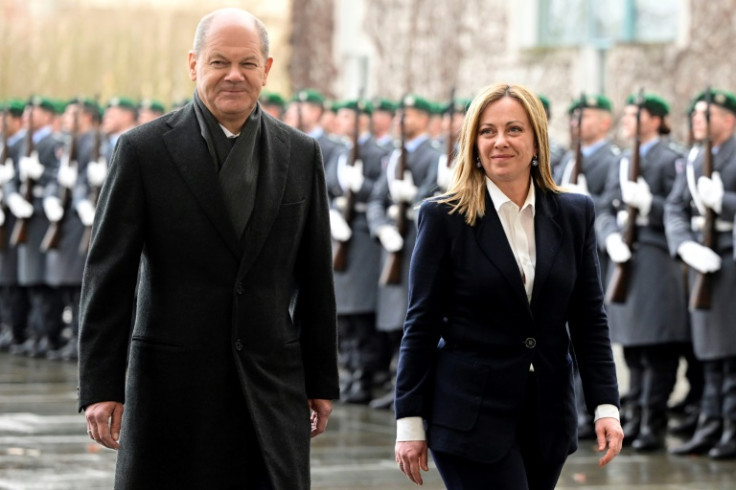Italian PM Faces Popularity Test In Regional Votes

Italy's two most populous regions vote on Sunday and Monday in elections seen as a test of the popularity of Prime Minister Giorgia Meloni's three-month-old government.
Candidates backed by her hard-right coalition are expected to triumph in elections to choose a new president and assembly members in Lombardy, Italy's northern economic powerhouse, and Lazio, which includes the capital Rome.
Local issues will play a part, but "these elections represent a test for the government in the sense of how they are interpreted politically", said Jean-Pierre Darnis, a political expert at Nice and Rome's Luiss universities.
"The right seems ahead, and that will be presented by Giorgia Meloni as a continuation of the momentum of September," when her far-right Brothers of Italy party came top in national elections, he told AFP.
However, the vote will be closely watched for signs of tensions between Meloni and her coalition partners -- Matteo Salvini's far-right League and Silvio Berlusconi's right-wing Forza Italia.
The rise of the Brothers of Italy has been largely at the expense of its right-wing allies, and while the League candidate is expected be re-elected president of Lombardy with the coalition's support, Meloni's party is expected to secure the most votes.
Her party made history by securing 26 percent in September's legislative elections, and in October Meloni became Italy's first female prime minister, at the helm of the most right-wing government in Rome since World War II.
After a campaign dominated by anti-immigrant rhetoric, she has clamped down on migrant rescue charities operating in the central Mediterranean, but on international affairs she has followed a conventional line.
Despite her euro-scepticism and often strident nationalism, Meloni has maintained ties with Paris and Berlin, while strongly backing the EU's support for Ukraine following Russia's invasion.
Brothers of Italy is currently polling at more than 29 percent, according to a YouTrend survey published on February 2, compared to 8.7 percent for the League and seven percent for Forza Italia.
Her coalition has also benefited from a splintered opposition nationwide, with the centre-left Democratic Party (PD) in search of a leader.
In Lombardy, president Attilio Fontana, a member of Salvini's League and the candidate of Meloni's coalition, is expected to be re-elected for another five-year term.
A January poll found Meloni's party well ahead in the region, at around 25 percent, compared to barely 13 percent for the League.
Further south in Lazio, right-wing candidate Francesco Rocca is expected to win in the face of a divided opposition, replacing the Democratic Party's Nicola Zingaretti, who resigned after being elected to parliament last year.
But Franco Pavoncello, a professor of political science at Rome's John Cabot university, said the elections are unlikely to destabilise the government.
"I don't think the result in Lombardy could weaken Salvini," who has already seen his party trounced by Brothers of Italy in the national elections, Pavoncello said.
Salvini is also claiming success after cabinet ministers voted earlier this month to back more regional autonomy, even if the measure may not be implemented for years, if at all.
Italy's regions enjoy a high level of autonomy, including over transport, healthcare and education, but the League -- once named the Northern League -- is agitating for more.
The results of both elections are expected from Monday evening onwards.

© Copyright AFP 2024. All rights reserved.





















